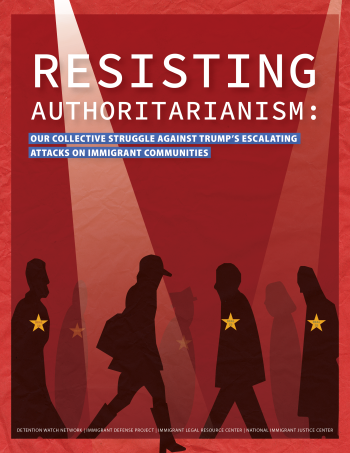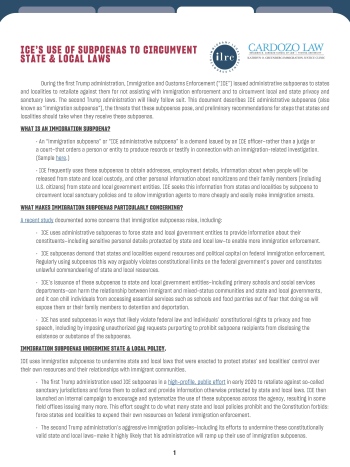
Tracking all the tactics this administration is deploying to target immigrants is overwhelming. In this document, we attempt to summarize some of the key ways the Trump administration is shifting policies and practices to surveil, arrest, detain, deport, and silence immigrants and the people who support them. We do not name every shift; rather, we focus on the weaponization of the criminal legal system, the increasingly authoritarian approach, and the role of the federal budget, which are key tools of the Trump administration’s brutality and also vital sites of advocacy needed to stem the tide.
The IJ roundtable, composed of 71 former Immigration Judges and former Board Members and Appellate Immigration Judges of the Board of Immigration Appeals issued a letter highlighting their concerns about HB 1554 and the importance of having legal counsel in immigration proceedings.
The Department of Homeland Security (DHS) is proposing to change several forms by adding questions about an applicants’ family members, old email addresses and phone numbers and social media account information. The collection of information goes far beyond what the government needs to adjudicate these applications. The information in this resource discusses what the changes are and how to submit a comment.

A primer on how ICE uses administrative subpoenas to circumvent local sanctuary laws, from the Benjamin N. Cardozo School of Law and ILRC. This brief explainer discusses the nature of ICE subpoenas, how they are used, and the legal issues involved.
The Trafficking Victims Protection Reauthorization Act of 2008 confers initial jurisdiction over asylum claims filed by unaccompanied children (UCs) to the asylum office. The Board of Immigration Appeals’ decision in Matter of M-A-C-O-, along with policy changes implemented during the first Trump administration, sought to strip away this crucial protection from many child asylum seekers. Because of these changes and legal challenges by immigrant youth advocates, the current landscape of initial UC asylum jurisdiction has changed. This practice advisory provides an overview of the current state of UC asylum jurisdiction following the Matter of M-A-C-O- decision and the outcome of the JOP v. DHS litigation. It also offers some arguments and practical tips to help practitioners advocate for their UC clients to receive the statutory protections afforded by the TVPRA, as well as the benefits from the JOP v. DHS litigation.